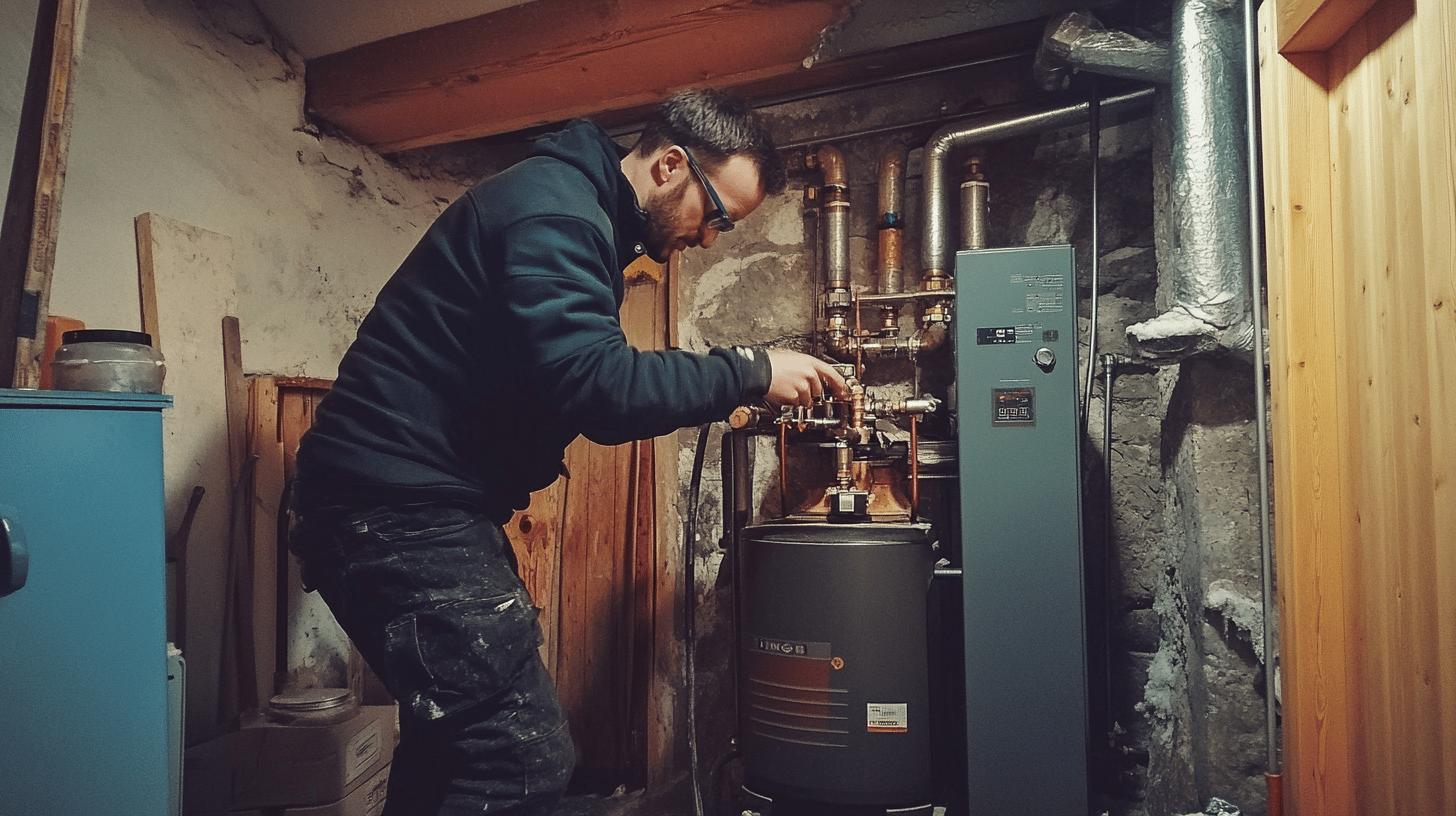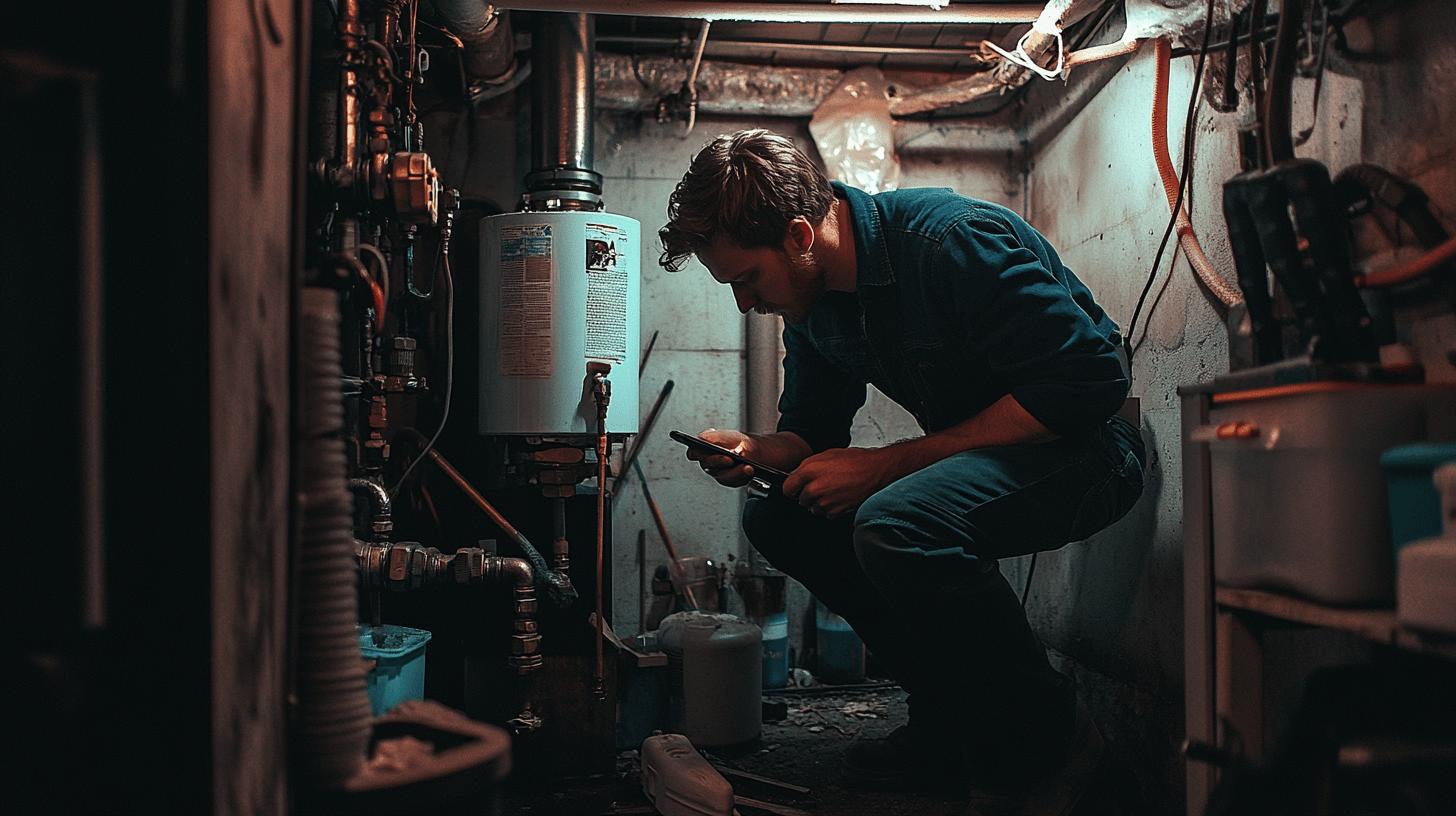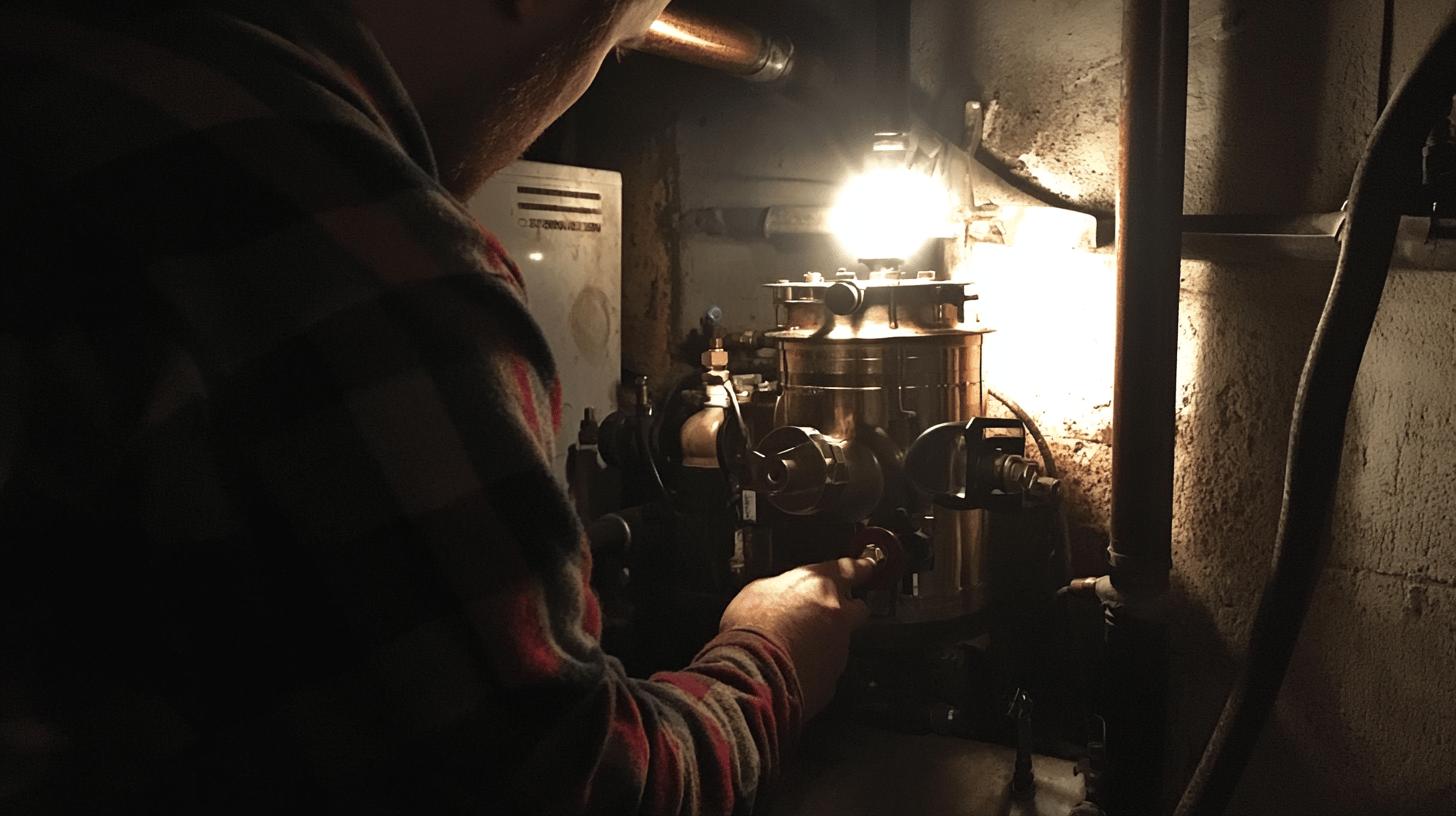TL;DR:
- Combi Boilers: Need steady water flow; may shut down if supply is cut.
- System Boilers: Heat radiators but can’t refill hot water cylinder.
- Conventional Boilers: Similar to system boilers; heat but may run out of hot water.
- Modern Features: Many have sensors for supply issues; can detect changes and adjust operations.
- Precautions: Monitor for shutdowns, maintain low heating, check hot water levels, and inspect valves.
- Post-Restoration: Check error codes, ensure valve positions, monitor pressure, and listen for unusual noises.
- Professional Maintenance: Regular checks boost safety and prevent issues during water disruptions.
When the water supply is turned off, many homeowners worry about the impact on their boiler. It’s an important concern, especially during maintenance or unexpected outages. Knowing how different types of boilers react can help you avoid stress and protect your heating system.
Combi boilers, for instance, rely heavily on a constant water supply to operate effectively, so when the water is cut off, they may not function properly. In contrast, some other boiler types can manage without water for a limited time. However, this can still pose risks, such as overheating or damage to components.
In this article, we’ll dive into how various boiler types respond to a loss of water, the potential dangers involved, and the safety features that modern systems provide. With this knowledge, you can ensure your home stays warm and your boiler remains in good condition, even during unexpected disruptions.
Impact of Turning Off Water Supply on Boilers
Boilers typically operate in a closed-loop system, so turning off the water supply usually doesn’t cause harm. They use the water already contained within the boiler and radiators, which is separate from the main supply. This means that central heating can still function even when the water supply is turned off.
-
Combi Boilers: These need a steady water flow. Cutting the supply may cause them to shut down completely as they deliver both heating and hot water.
-
System Boilers: They can still heat radiators but won’t refill the hot water cylinder, leading to a shortage over time.
-
Conventional Boilers: Like system boilers, they keep heating but eventually exhaust hot water without a fresh supply.
-
Sensor-Equipped Boilers: Many modern boilers have sensors to detect water supply issues, adjusting automatically to avoid damage.
-
Pressure-Controlled Systems: Boilers with pressure controls can shut down safely when water pressure drops a lot.
Turning off the water supply generally poses minimal risks, thanks to modern safety features. Combi boilers, for instance, may shut down completely to prevent damage if the water supply stops. This safety mechanism prevents them from running dry and overheating. In the case of system and conventional boilers, the main concern is that the hot water cylinder won’t refill, which means you’ll lack hot water. However, the heating system itself will still function normally since it relies on the circulated water already in the system.
Modern boilers are equipped with sensors and pressure controls that help manage disruptions in the water supply. These systems can detect changes in pressure or temperature and adjust their operations accordingly to prevent overheating or other issues. Regular professional maintenance enhances the safety and efficiency of these boilers, ensuring they perform well even during water supply interruptions.
Boiler Safety and Precautions during Water Shut-Off

When the water supply is off, maintaining the safety and efficiency of your boiler is crucial. Combi boilers may automatically shut down if water pressure drops, which helps prevent dangerous situations like overheating due to inadequate flow. Meanwhile, system and heat-only boilers can still heat your home, but they won’t provide hot water since the cylinder can’t refill.
In winter, it’s wise to use a smart thermostat to maintain a low heating setting. This approach helps prevent pipe bursts by keeping a stable temperature in your home, protecting your plumbing while ensuring the boiler operates safely.
| Boiler Type | Precautionary Steps |
|---|---|
| Combi Boilers | Watch for shutdowns from low pressure; don’t leave the system dry. |
| System Boilers | Keep low heating to avoid freezing; expect less hot water. |
| Heat-Only Boilers | Continue heating to prevent pipe bursts; check hot water levels. |
Regular inspection and maintenance are essential when the water supply is shut off. Professional plumbers can identify potential issues early on, giving you peace of mind and helping to extend your boiler’s lifespan. They make sure safety features like pressure sensors and automatic shutoffs are functioning properly. Routine checks help maintain optimal performance and can prevent costly repairs when unexpected water disruptions occur.
Troubleshooting and Maintenance Post Water Supply Restoration
Once the water is restored, it’s important to check that your boiler is functioning correctly. Begin by looking for any error codes, which can signal problems that need attention. Make sure all valves are in the right position to allow for proper water flow and to prevent any malfunctions in the system.
-
Check Error Codes: Look for messages on the display and consult the manual for guidance.
-
Inspect Valves: Ensure they are open for water to flow.
-
Monitor Pressure Levels: Ensure the pressure is within the recommended range.
-
Listen for Unusual Noises: Unusual sounds could suggest trapped air in the system.
-
Test Hot Water and Heating: Check both functions are working correctly.
Regular maintenance and professional inspections are essential for preventing issues that arise from water supply disruptions. Routine checks can catch minor problems before they escalate into major repairs. Expert plumbers provide valuable advice and services to ensure your system runs efficiently and safely. If problems persist after restoring the water, it’s crucial to consult a plumber, as they can diagnose and resolve complex issues effectively.
Professional Advice for Boiler Management During Water Supply Interruptions

When your water supply is interrupted, getting expert advice is crucial for protecting your boiler. Professionals are well-versed in the specific guidelines laid out in your boiler manual, which contain important instructions for handling water issues to maintain safety and efficiency. For instance, experts often recommend turning off boilers that are at risk of running dry to prevent damage, especially for combi boilers that require a constant water flow. Adhering to the manual’s guidance is key to keeping your system safe during outages.
If the water supply is out for an extended period, it’s wise to consult a plumber. Their expertise allows them to assess risks and implement preventive measures. They can ensure that safety features are functioning properly and help avoid costly repairs down the line. Engaging professionals not only protects your boiler’s lifespan but also ensures it runs efficiently when the water supply is restored.
Final Words
Knowing how turning off the water supply affects your boiler is key for keeping it safe and efficient. Different boiler types respond differently when the water supply is cut. Combi boilers usually shut down completely to avoid damage, while system and conventional boilers can still provide heat but won’t refill with hot water. Modern boilers are equipped with sensors that help manage these interruptions safely.
Taking safety precautions during water supply disruptions is important to prevent damage and ensure smooth operation. When the water supply comes back, you should check the valves and any error codes to troubleshoot any issues. Regular maintenance is also essential for preventing potential problems.
It’s a smart idea to consult professionals to help maintain your boiler’s longevity and efficiency, especially during challenging situations like water supply interruptions.
FAQ
How long does turning off the water supply affect a boiler?
Turning off the water supply affects boilers depending on their type. Combi boilers may shut down immediately, while system and conventional boilers continue heating but won’t replenish hot water.
Does turning off the water supply damage a combi boiler?
When the water supply is off, combi boilers might shut down to avoid damage. Operation without water can harm components, so it’s advised to address water pressure promptly.
Can I use my gas heating when the water is off?
You can use gas heating as long as the system is a heat-only or system boiler. These systems operate independently on a closed loop, allowing heating without a water mains connection.
What happens if a boiler runs out of water?
If a boiler runs out of water, it can overheat and risk damage. Most modern boilers will shut down to prevent overheating if low water levels are detected.
Why doesn’t my boiler work after turning the water back on?
Boilers may fail after water restoration due to trapped air, incorrectly positioned valves, or error codes. Consulting the manual or a professional can help resolve these issues.
Will switching off the water damage the boiler or water heater?
Switching off the water won’t typically damage boilers, as they have safety features to handle such interruptions. It’s crucial to follow manufacturer guidelines to avoid potential damage.
How do I turn off the water supply to a boiler safely?
To turn off the water supply, locate the main water valve, usually near the boiler or in the utility area. Turn the valve clockwise to stop water flow.
What precautions should I take when the water supply is cut off?
In case of a water cut-off, lower the thermostat and follow your boiler type’s precautions. Reference the boiler manual for specific safety instructions and seek professional help if unsure.
How do modern boilers handle water supply interruptions?
Modern boilers have sensors and automatic shut-off controls to prevent damage during water supply interruptions. These features ensure safe operation and prevent overheating or mechanical failures.
When should I contact a professional for boiler issues during water interruptions?
Seek professional help if the boiler won’t restart after water restoration or shows persistent error codes. Regular inspections and maintenance ensure your system remains in good working order.

